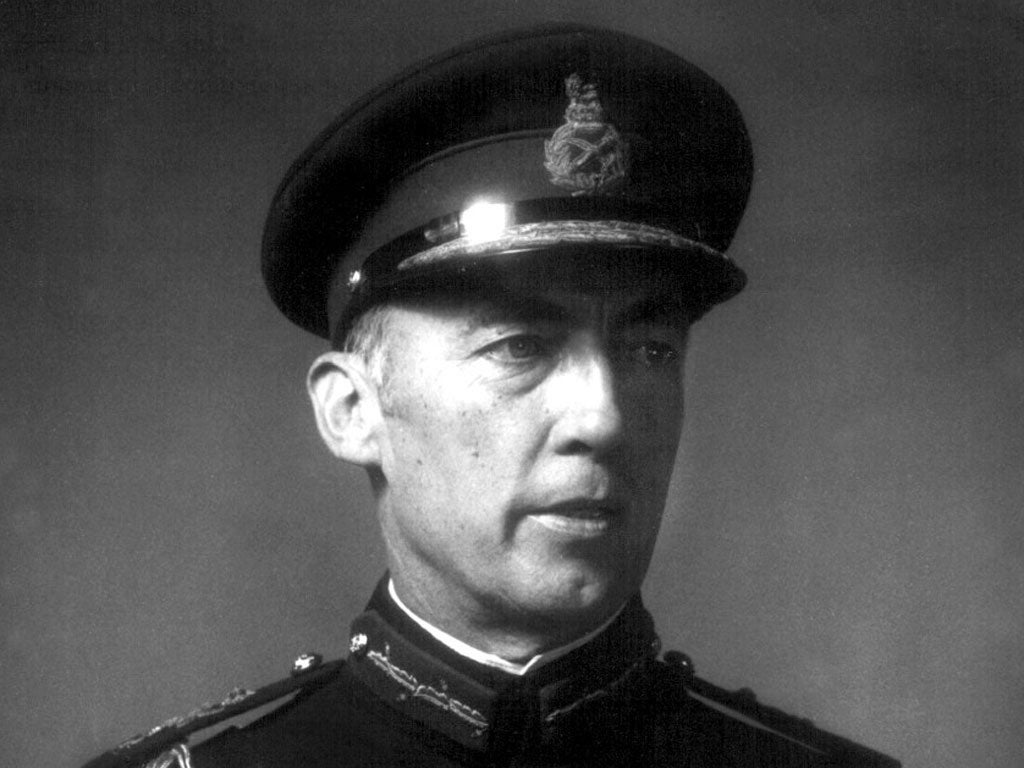Lieutenant General Sir Alan Reay: Soldier who fought cutbacks

Not a drop was spilt of the blood parachuted down on to Port Stanley during the Falklands War in 1982 by Sir Alan Reay's Army Medical Services, but at home his personal rearguard action against a thousand cuts was to end a heroic failure.
Reay, the last independent Director-General of the AMS (DGAMS), was to retire at the end of 1984 knowing the knell had sounded for the Army's separate medical college at Millbank in London, where amid splendour since 1907 top brass had considered how to save soldiers' lives in battle.
The blood packets of Stanley, dropped at a time when aircraft could not land, were innovatively treated to extend their useful life and wrapped in material developed over the previous two years by units of the Army's medical pathology branch, a part of the services that had grown from the work of the Duke of Wellington's military surgeon, Sir James McGrigor, DGAMS from 1815-51. The college had its own professors in preventive care, field psychiatry, medicine, pathology and surgery, and its remit also covered dentistry and veterinary science.
"No one could have represented the Army Medical case more strongly or more eloquently, but he and his colleagues were overborne," an Army supporter of his policies declared. "It is a paradox [because of the Falklands field medicine successes] that the greater part of his time in office was spent in resisting pressures for reorganisation and cutbacks inspired politically and on economic grounds."
After Reay's departure the office of DGAMS was combined with that of the Surgeon-General and during the next decade army, navy and air force medical services were merged into the Defence Medical Services training centre at Keogh barracks at Aldershot. A last recorded smile of delight did, however, spread over the face of the tall, dignified military physician when the Royal Army Medical Corps Band reconstituted itself after its abolition in time to play at a Regimental Dinner at Millbank under a Territorial Army guise, with ad-hoc uniforms, on 22 November 1984.
The Royal Army Medical Corps' contingent in "Operation Corporate", the Falklands campaign, included 2 Field Hospital, 16 Field Ambulance, and elements of 19 Field Ambulance. One Field Surgical Team had to be left on board the troopship Canberra as she was escorted out of the "Bomb Alley" landing site at San Carlos to escape heavy air attack, but the other three used Field Dressing Stations at a mutton factory at Ajax Bay, as well as Teal Inlet and Fitzroy on East Falkland, and sent casualties back to the hospital ship Uganda. They had a specialised burns team, performed 233 operations, and alleviated widespread gastro-enteritis and trench foot.
They treated Argentinian as well as British forces, and were thanked by the Argentinian surgeon and staff who, in handing back the King Edward VII Hospital at Stanley, said they knew from the moment the cruiser General Belgrano was sunk that they would lose, as Britain was, after all, still a significant military power.
Reay's own experience in the field brought him a mention in despatches in 1951 for work as second-in-command of 16 Field Ambulance in Malaya.
Reay was born in 1925 in Hednesford, Staffordshire, his father a clergyman. After Lancing College and Edinburgh University he did National Service, then converted to a regular commission in 1952, gaining his MRCP in 1955 and DCH Eng in 1957. By 1968, after service in Singapore and with the British Army on the Rhine, he started the Army's Paediatric Service and became the Ministry of Defence's consultant adviser in the specialty, raising the Cambridge Military Hospital, Aldershot, to be the reference hospital in the UK for Army families' children worldwide.
He became a Brigadier in 1974, Honorary Physician to the Queen in 1976, and Postgraduate Dean and Commandant of the Royal Army Medical College in 1977. He was Director of Medical Services BAOR in 1979 until taking over as DGAMS in 1981. After retiring he continued as an Honorary Outpatient Consultant at Great Ormond Street.
A different battle touched him when he was Chief Honorary Steward of Westminster Abbey, from 1985-97, during a tug of war over the Stone of Destiny that for centuries, except when once stolen, had lain under the Coronation Chair.
On duty each Sunday wearing the stewards' insignia of the Keys of St Peter and Arms of Westminster in silver and enamel on a blue ribbon, Reay was in the front line as the Dean, the Very Rev Michael Mayne, fought to prevent the Stone's removal, but was defeated in November 1996 when the Queen agreed that the Secretary of State for Scotland, Michael Forsyth, might have his wish and take it off to Edinburgh Castle.
Anne Keleny
Hubert Alan John Reay, medical officer and paediatrician: born Hednesford, Staffordshire 19 March 1925; Field Medical Services, Malaya, 1949-52 (despatches); Command Paediatrician: Far East, 1962; BAOR, 1965; Adviser in Paediatrics, MoD (Army), 1968; FRCP 1972; Hon. Out-patient Consultant, Great Ormond Street Hospital, 1975-79, 1985-87; QHP 1976-85; Postgraduate Dean and Comdt, Royal Army Medical College, 1977-79; KBE 1981; Director General, Army Medical Services 1981-84; married 1960 Ferelith Deane (two sons, two daughters and one son deceased); died London 4 February 2012.
Subscribe to Independent Premium to bookmark this article
Want to bookmark your favourite articles and stories to read or reference later? Start your Independent Premium subscription today.

Join our commenting forum
Join thought-provoking conversations, follow other Independent readers and see their replies